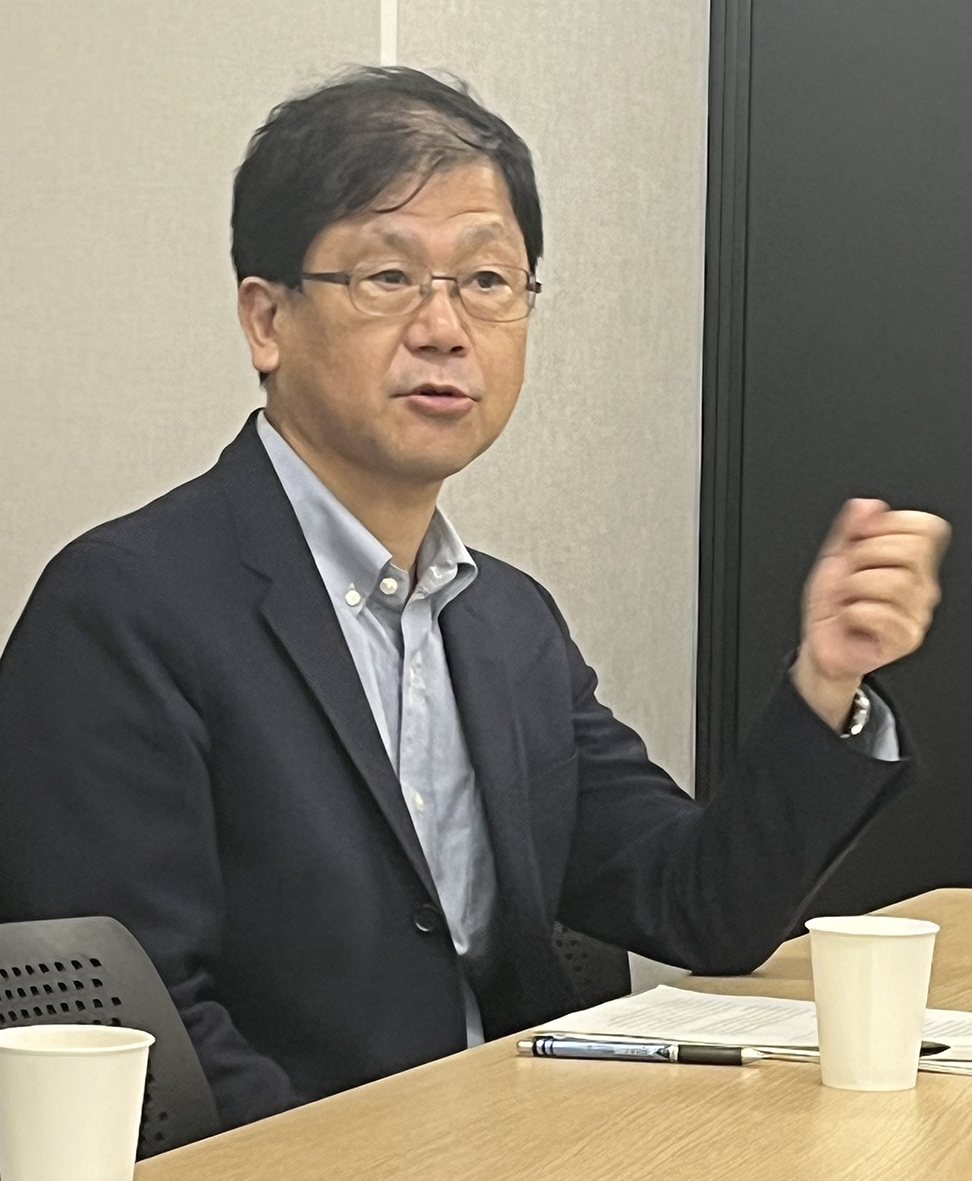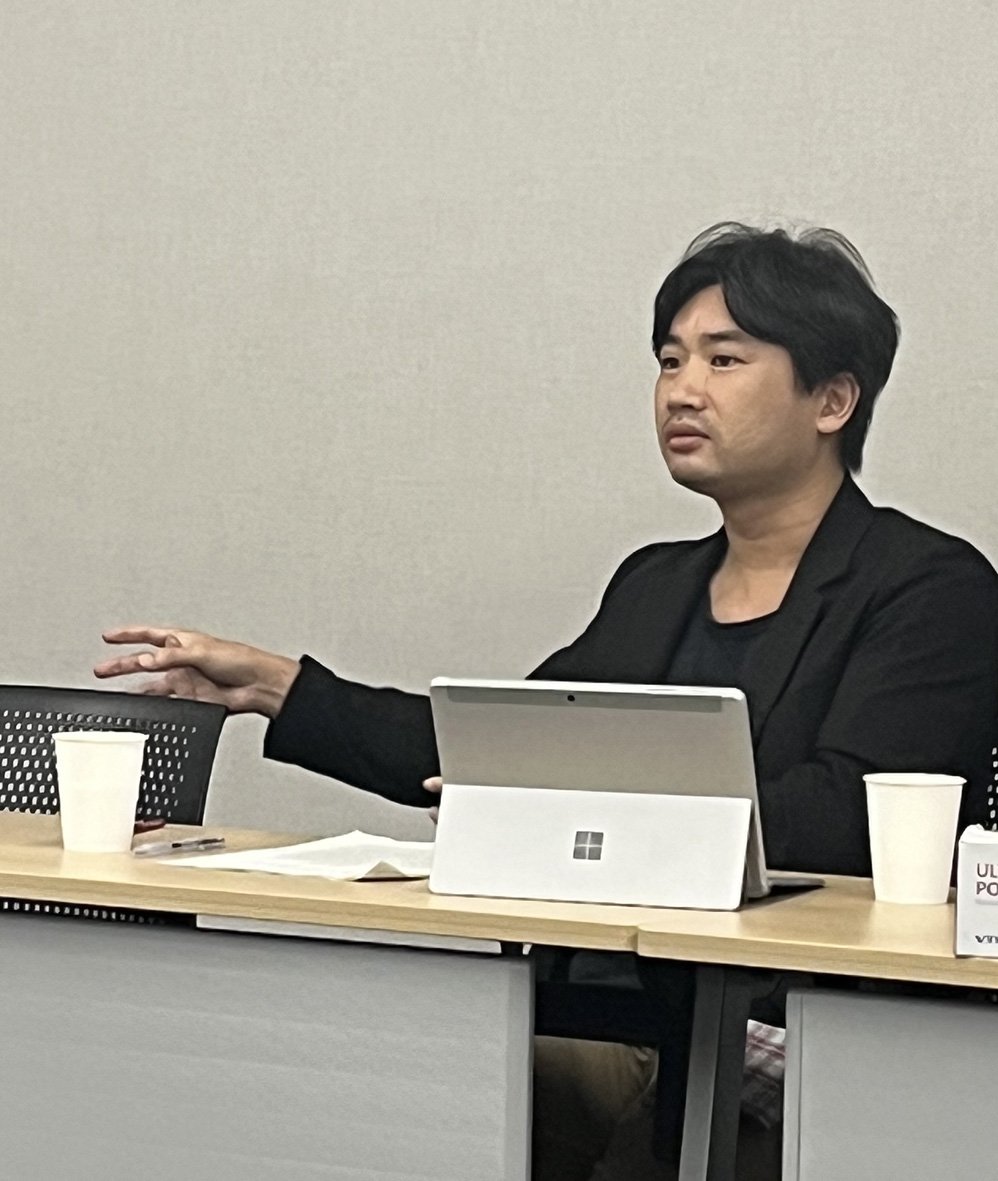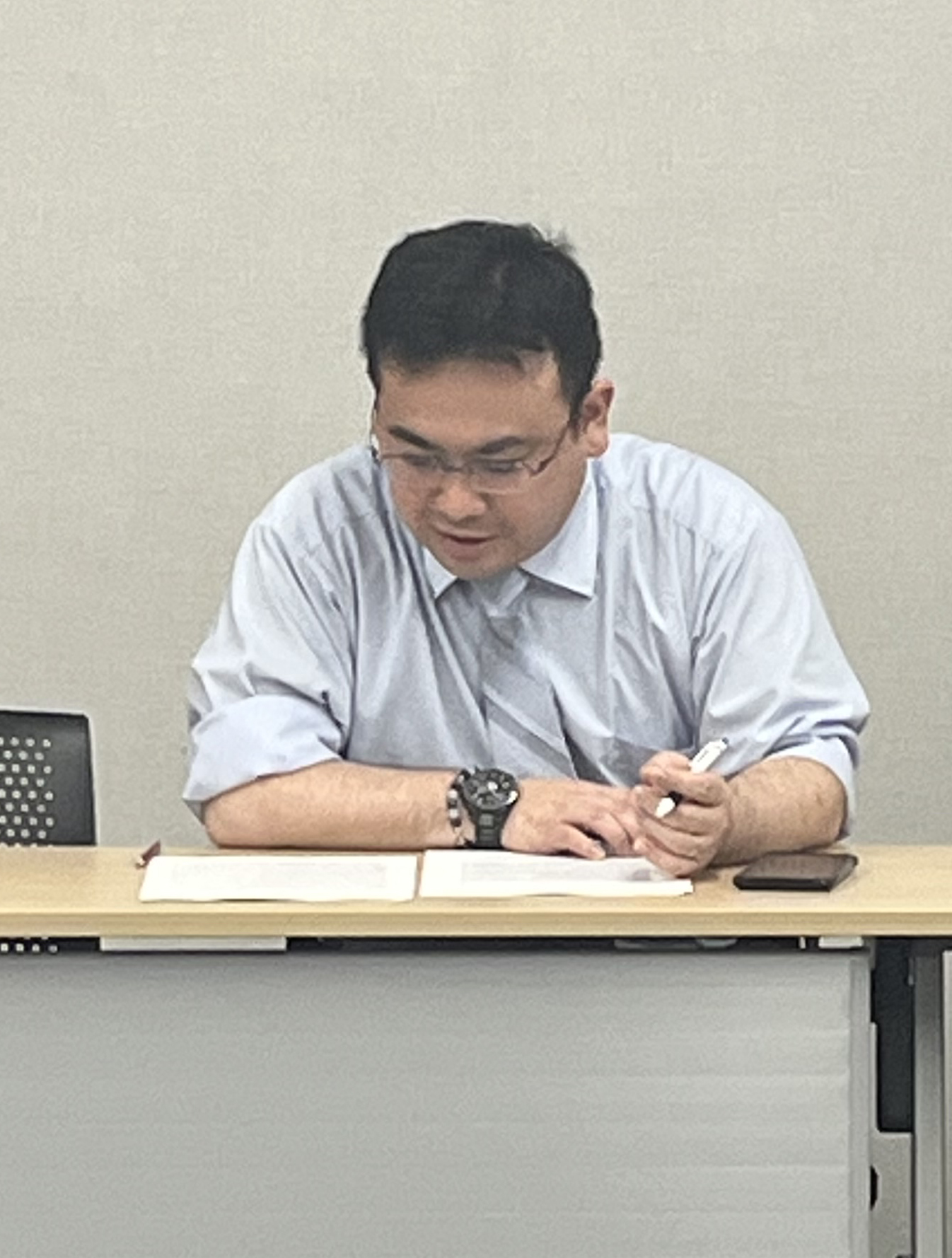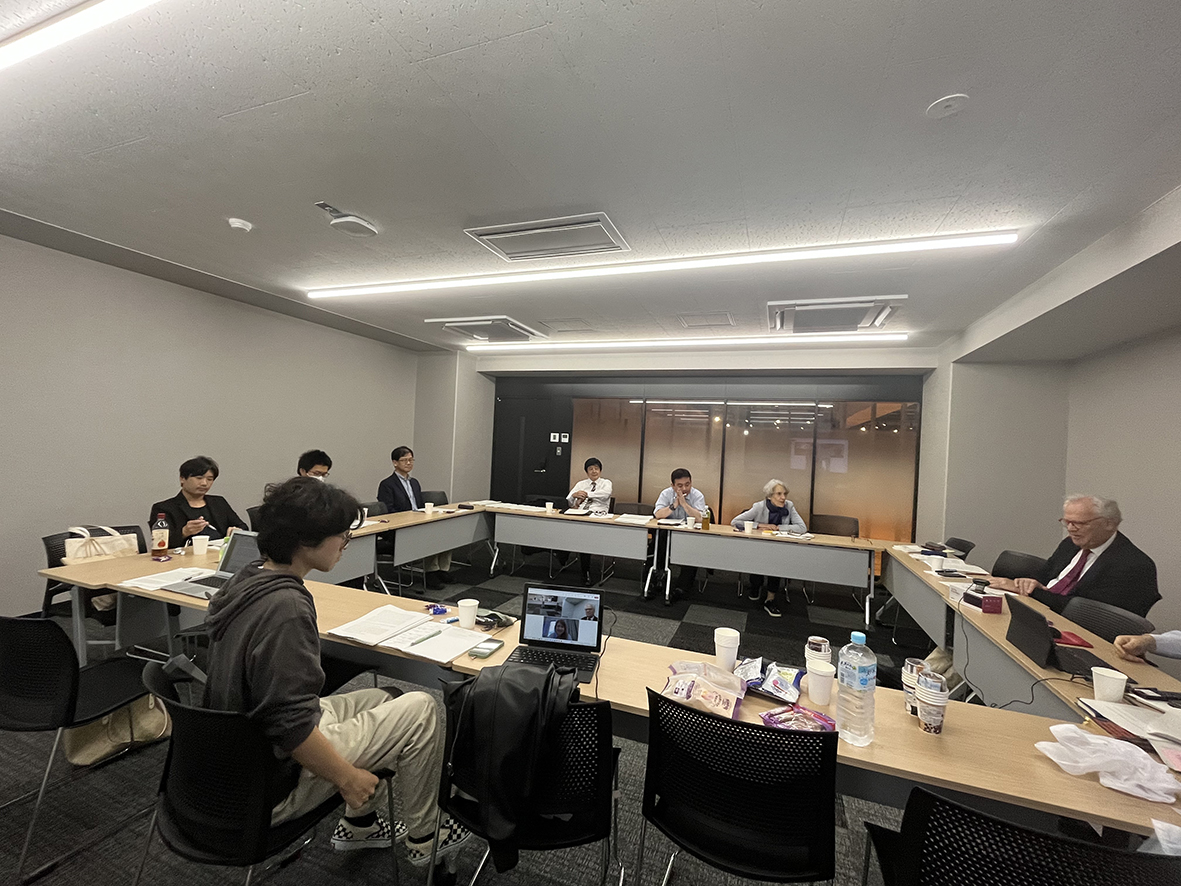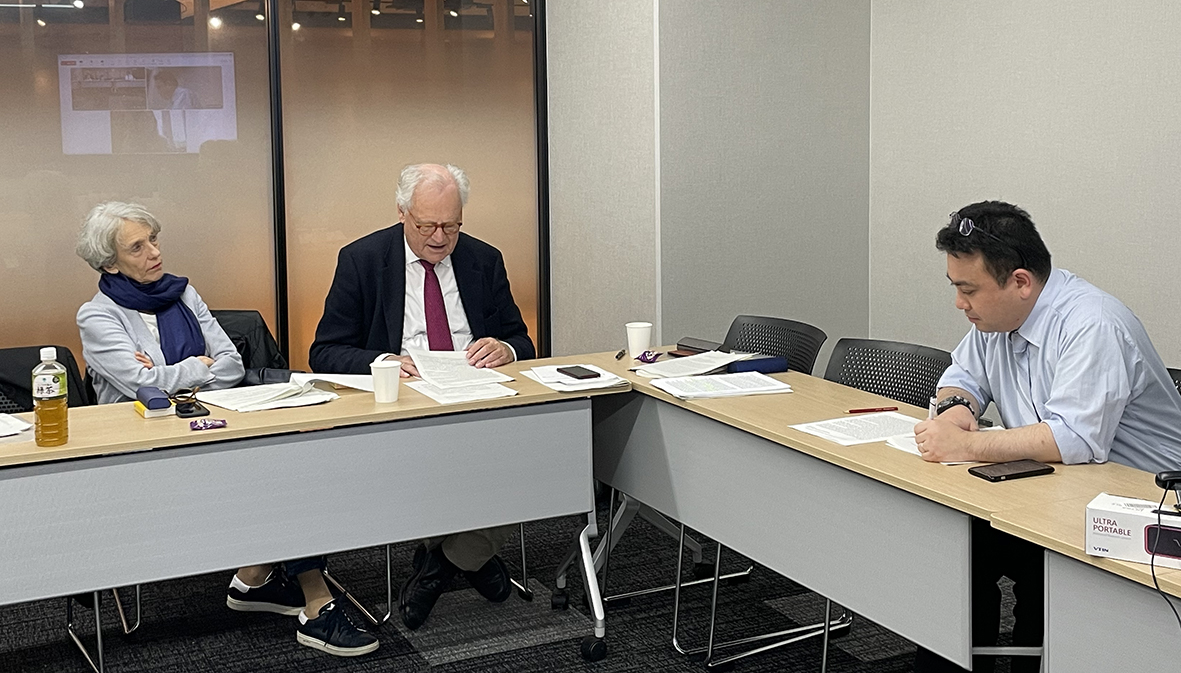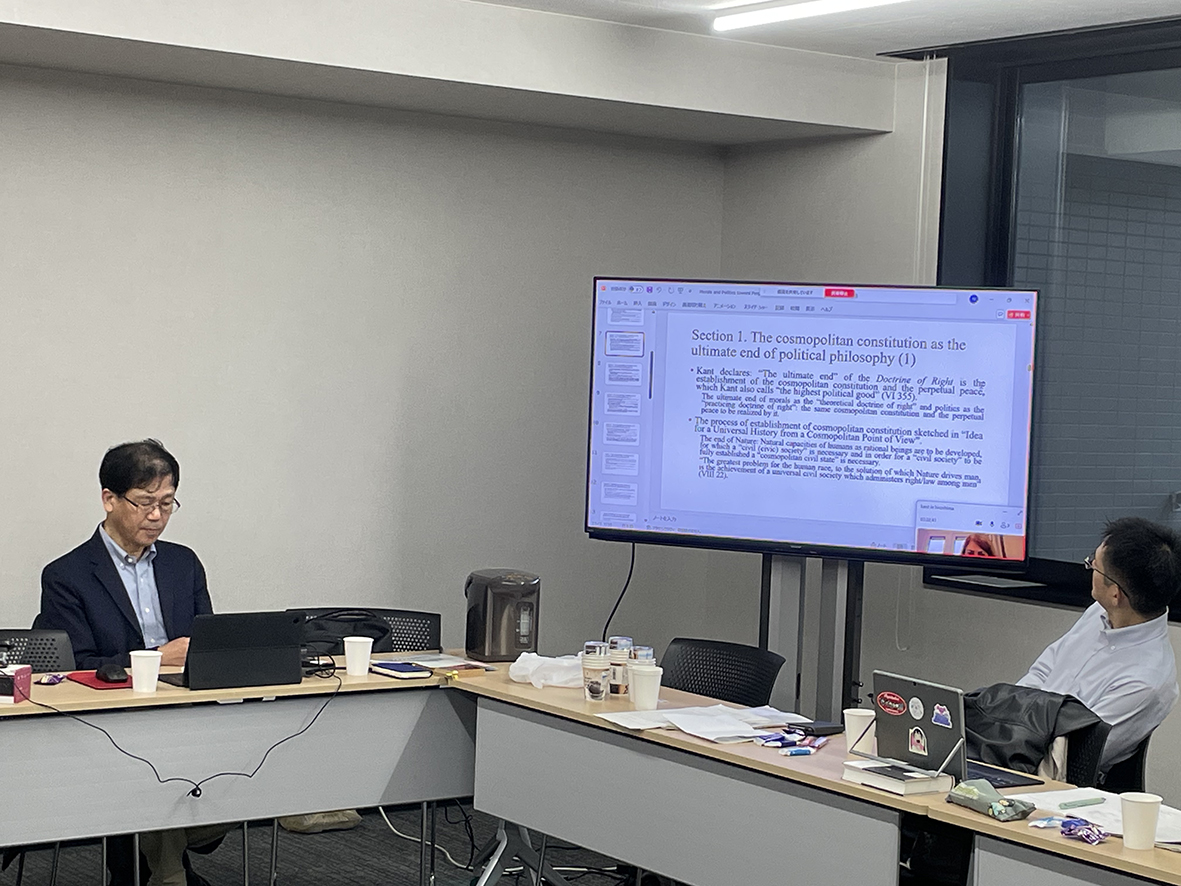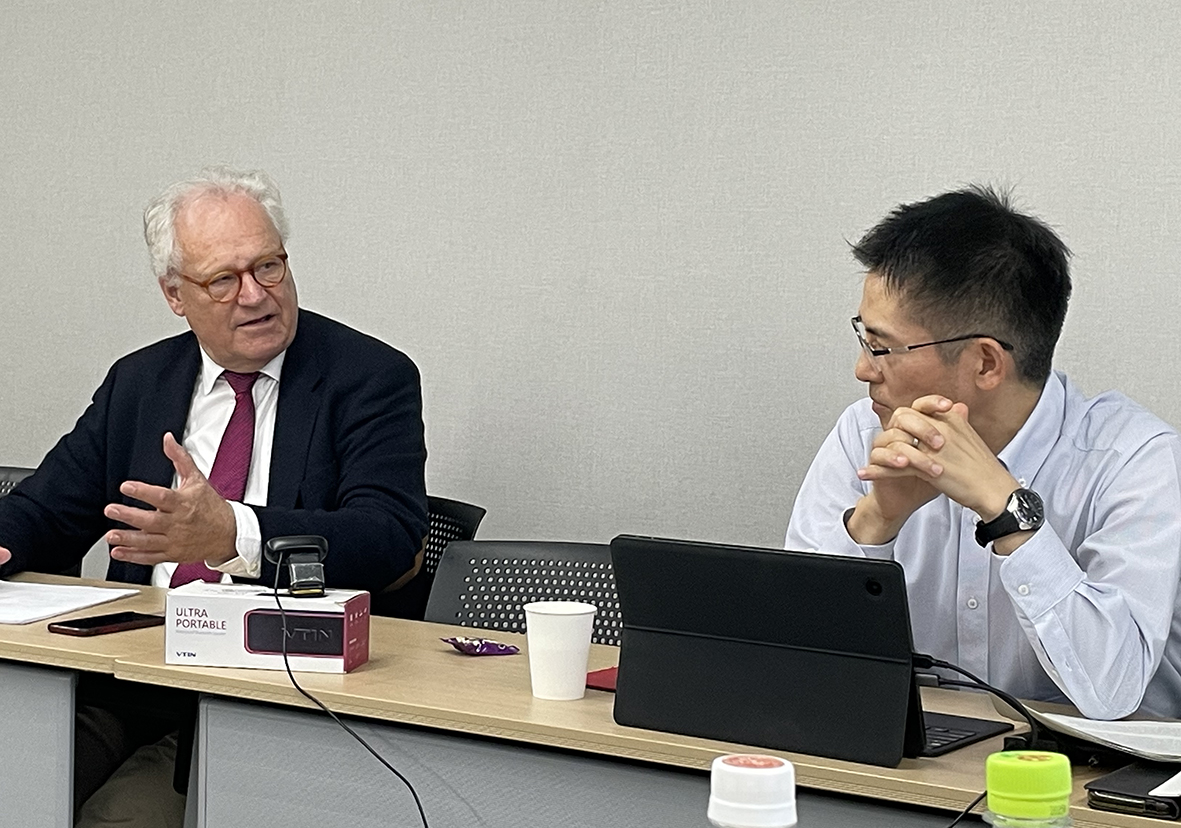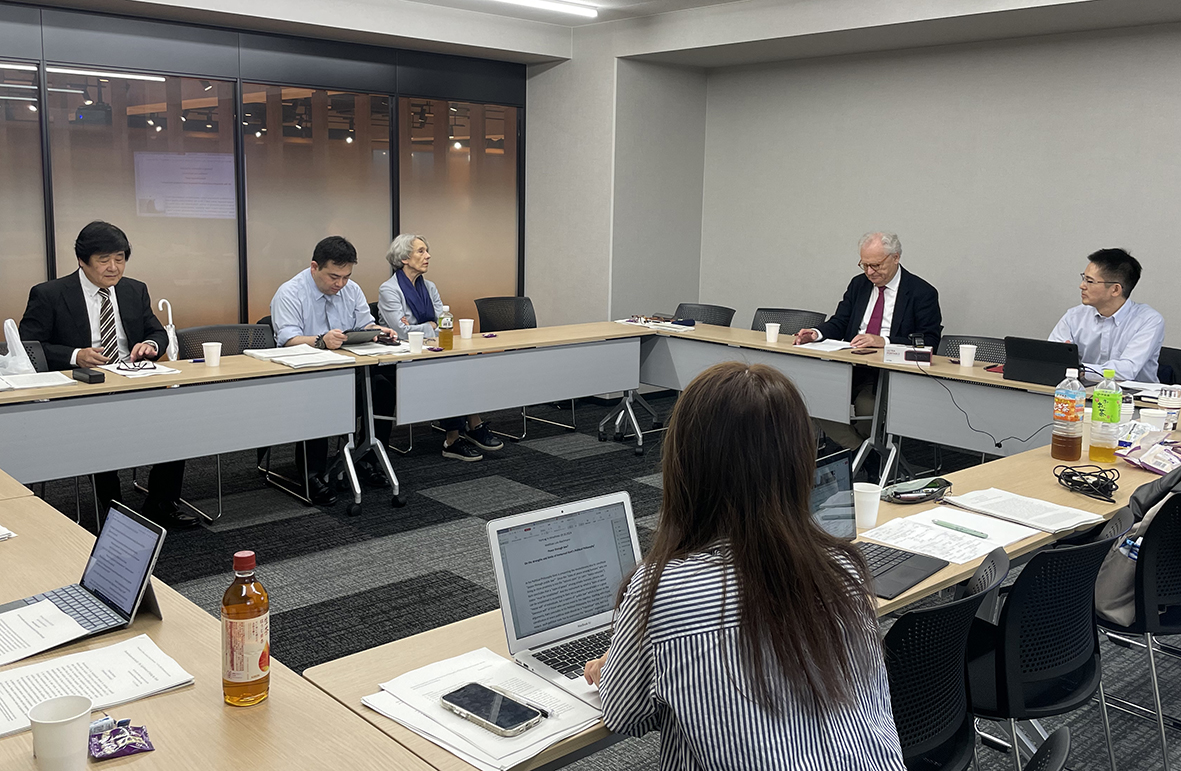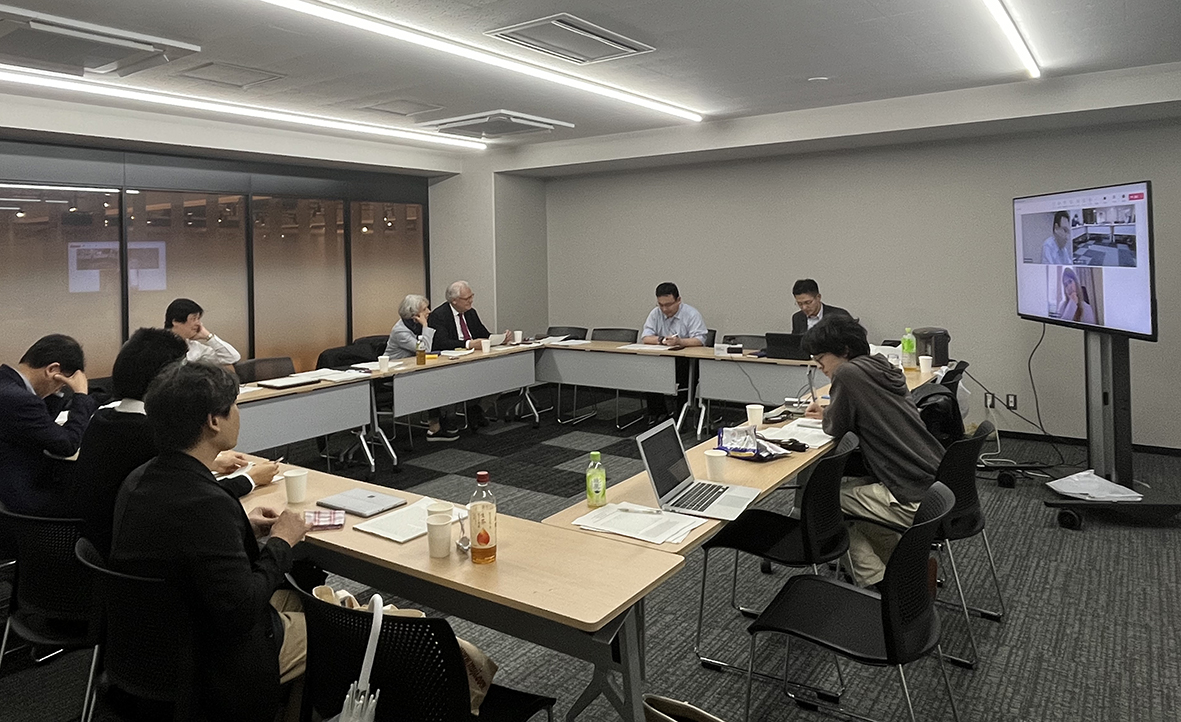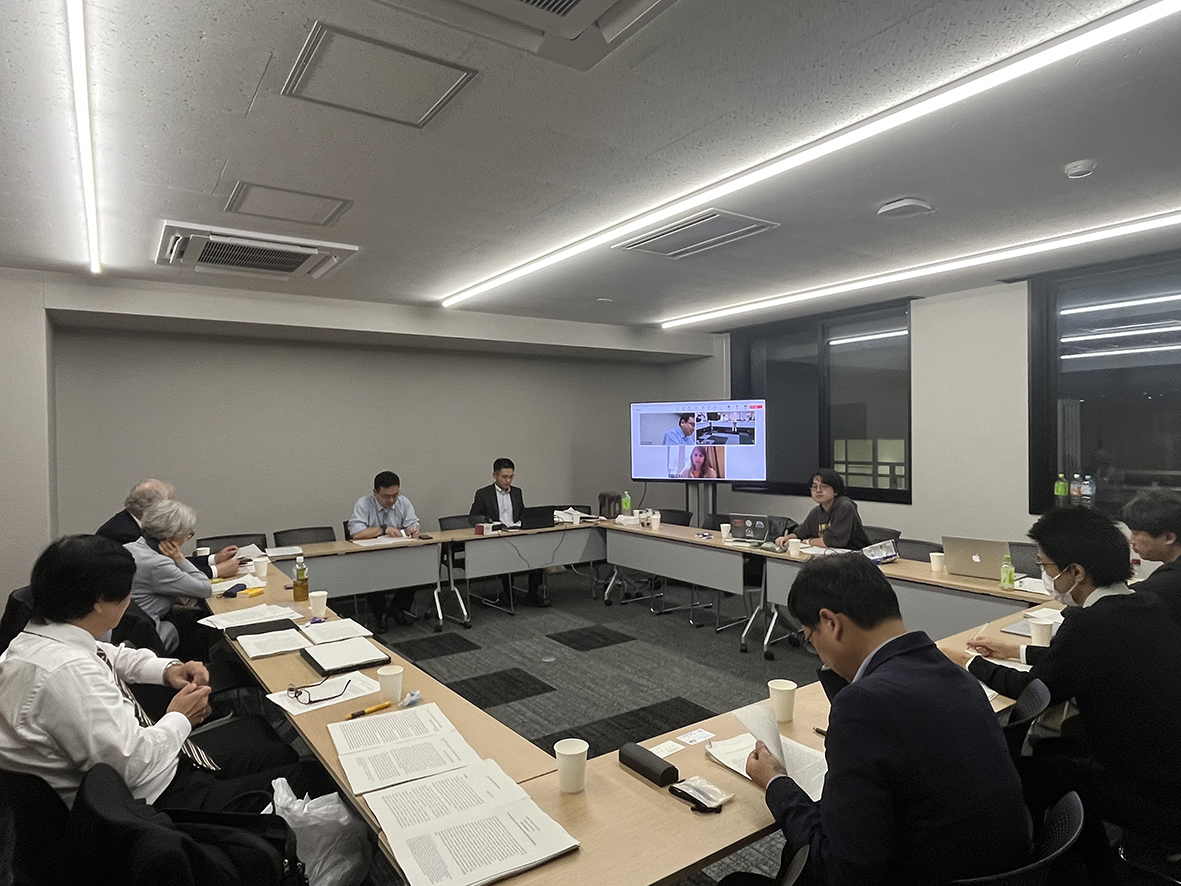2024年は『永遠平和のために』(1795年)で知られるドイツの哲学者、イマヌエル・カントの生誕300年の年に当たります。これを記念して、10月19日、広島市の広島大学東千田キャンパス内、SENDA LABにおいて標記のワークショップを開催しました。主催者は広島大学応用倫理学プロジェクト研究センター、実施担当者は、本領域の桐原隆弘教授で、博士課程前期大学院生の高 亦揚さんと野呂航平さんに手伝っていただきました。
講演と発表の参加者は以下になります。
| [Special Lectures] Matthias Lutz-Bachmann (Goethe University Frankfurt): “Peace through law? On the strengths and limits of Immanuel Kant’s Political Philosophy” Soraya Nour Sckell (NOVA School of Law): “Peace through Kant’s Cosmopolitanism” (online via Zoom) [Presentations and Discussions] Toshiro Terada (Sophia University): “Morals and Politics toward Perpetual Peace: Thinking together with Kant in Hiroshima in 2024” Tomoki Hazama (Hiroshima University): “Reconciliation with Reality: Significance of Telling a Truth” Junya Hamai(National Institute of Technology, Niihama College): “On the Linkage between Just War Theory and the Theory of Civil Resistance” Takahiro Kirihara (Hiroshima University): “Reconstructing Kant’s Political Theory as a Philosophy of Peace: Historical Contexts and the Moral Philosophical Foundation” |
【参加学生の感想】
本日のワークショップに参加するまで、哲学と平和の関係についてほとんど考えたことがありませんでした。しかし、広島で過ごした2年間の間に学校で多くの平和教育を受け、原爆の被爆地を訪れることで、戦争が人類にもたらす破壊性や平和の重要性を強く実感しました。カントの一連の哲学思想の中でも、特にマティアス・ルッツ=バッハマン教授が言及した「公法の確立」に非常に関心を持っています。また、濱井教授の講演では、現代においても不当な戦争が存在することが指摘されています。現在、各国の政治体制は異なりますが、こうした不当な戦争に対抗し、減少させるために、類似の公法秩序を確立することで平和の発展を促進するこの可能性を探求していきます。(博士課程前期1年 高 亦揚)
桐原先生の大学院授業の一環で、参加させていただきました。私は、学部(他大学)のときは西洋哲学のゼミに所属していましたが、哲学についての本格的なワークショップに参加したのは初めてだったので、大学での文献講読だけでは知ることのできなかった世界を知ることができたと思います。私は、特に広島での平和教育について、現在の国際状況やカントの永遠平和論・世界市民主義をふまえて、どのようにあるべきかを質問をしました。回答として、「真実を知ること」と「自分自身で考えること」を統合した哲学教育という提案をいただきました。私は社会科教育学の研究をしており、直接的にカントの研究をしているわけではありませんが、「なんのために研究をするのか」といった根源的な部分で、世界市民主義のような思想は大切に持っていたいと考えます。 (博士課程前期1年 野呂航平)
Report on the International Workshop for Philosophy of Peace “Philosophy of Perce in History: Kant in Hiroshima 2024”
2024 marks the 300th anniversary of the birth of Immanuel Kant, a German philosopher known for his book Perpetual Peace (1795). To commemorate this, a workshop was held on October 19th at the SENDA LAB on the Higashi-Senda Campus of Hiroshima University in Hiroshima City. The event was organized by the Hiroshima University Project Research Center for Applied Ethics, implemented by Professor Takahiro Kirihara with assistance from Ms. Gao Yiyang and Mr. Kohei Noro, both of whom are graduate students in this course.
The participants for the lectures and presentations are as follows:
| [Special Lectures] Matthias Lutz-Bachmann (Goethe University Frankfurt): “Peace through law? On the strengths and limits of Immanuel Kant’s Political Philosophy” Soraya Nour Sckell (NOVA School of Law): “Peace through Kant’s Cosmopolitanism” (online via Zoom) [Presentations and Discussions] Toshiro Terada (Sophia University): “Morals and Politics toward Perpetual Peace: Thinking together with Kant in Hiroshima in 2024” Tomoki Hazama (Hiroshima University): “Reconciliation with Reality: Significance of Telling a Truth” Junya Hamai(National Institute of Technology, Niihama College): “On the Linkage between Just War Theory and the Theory of Civil Resistance” Takahiro Kirihara (Hiroshima University): “Reconstructing Kant’s Political Theory as a Philosophy of Peace: Historical Contexts and the Moral Philosophical Foundation” |
[Comments from participating students]
Before attending the workshop, I had hardly thought about the relationship between philosophy and peace. However, during the two years I lived in Hiroshima, I took a lot of peace education courses at the university, visited the atomic bomb site, and realized the destructiveness of war to mankind and the importance of peace. Among Kant’s series of philosophical thoughts, I am very interested in the establishment of public law mentioned by Professor Matthias Lutz-Bachmann. In Professor Hamai’s speech, it was also mentioned that there are also unjust wars in our current world. Although the political forms of various countries are different at present, we can resist or reduce such unjust wars by establishing a similar public order to promote the development of peace. (Gao Yiyang, 1st year master’s student of this course)
I participated in this workshop as part of Professor Kirihara’s graduate class. I belonged to a seminar on Western philosophy as an undergraduate (at another university), but this was the first time for me to participate in a full-scale workshop on philosophy, and I think I was able to learn about a world that I could not have known only by reading literature at university. I asked a question about peace education, especially in Hiroshima, considering the current international situation and Kant’s eternal peace theory and world citizenship. In response, I received a proposal for a philosophy education that integrates “knowing the truth” and “thinking for oneself.” I am studying social studies education, and although I am not directly studying Kant, I would like to hold on to ideas such as world citizenship in the fundamental part of my research, such as “What is the purpose of my research?” (Kohei Noro, 1st year master’s student of this course)

